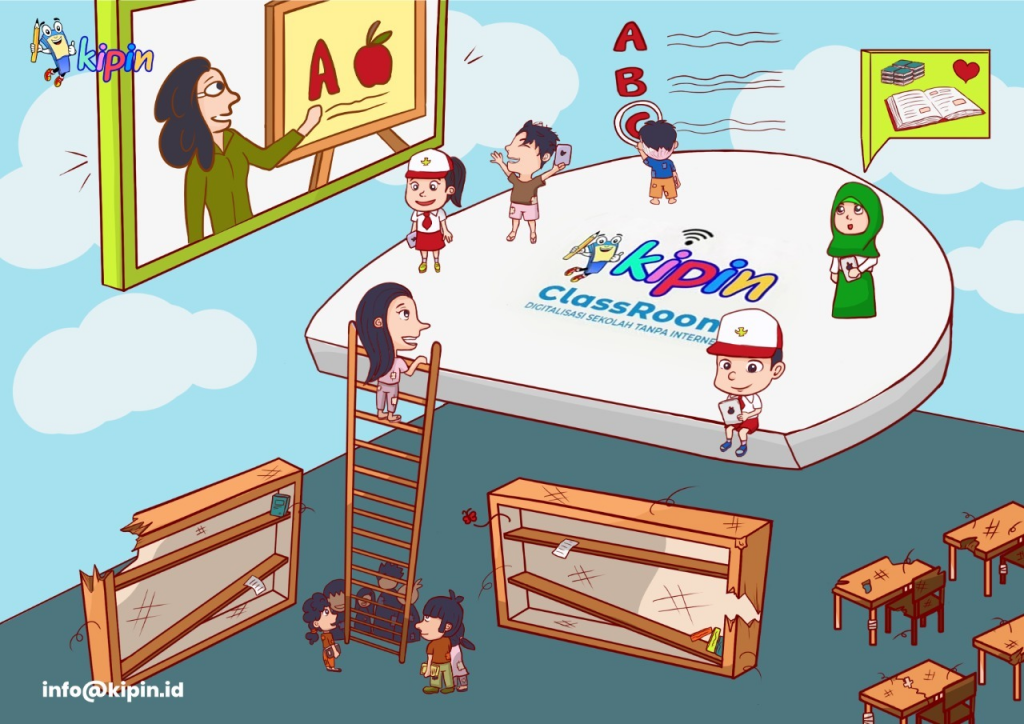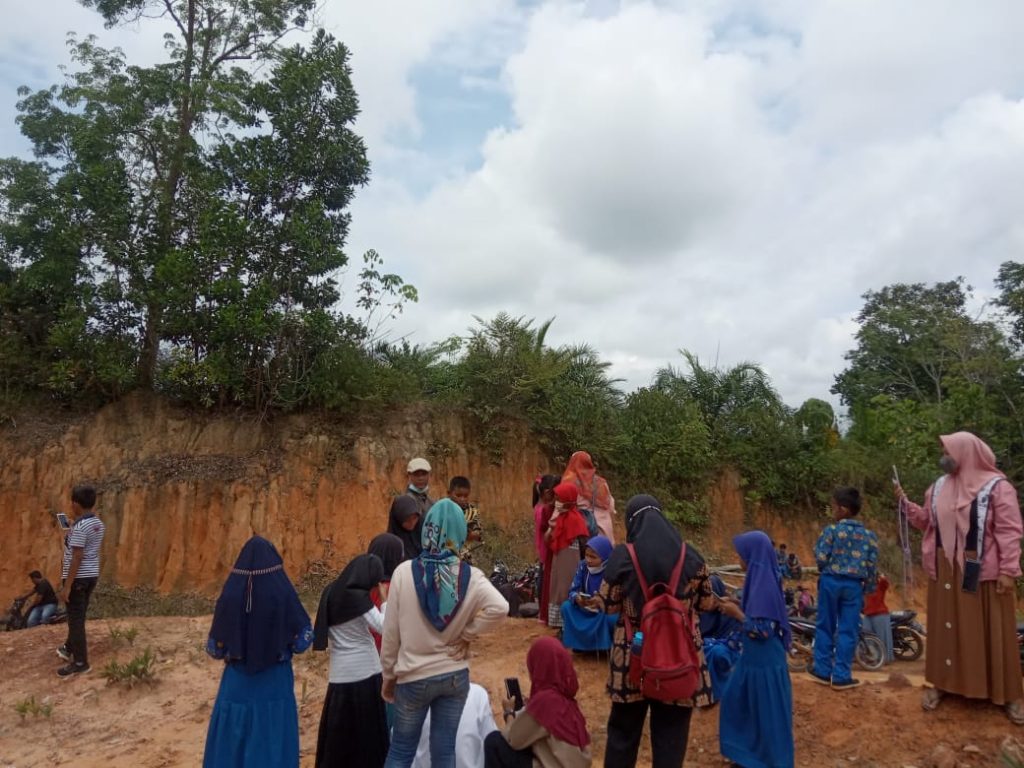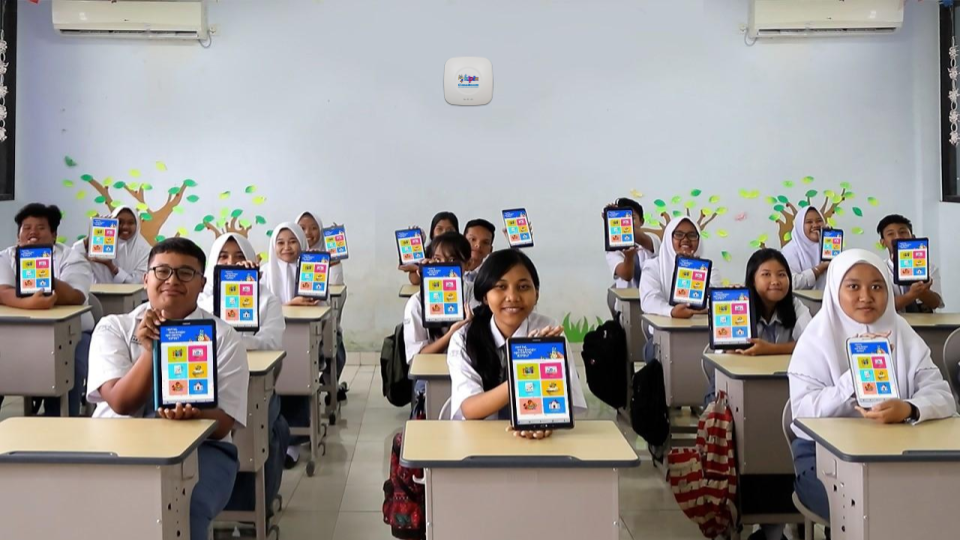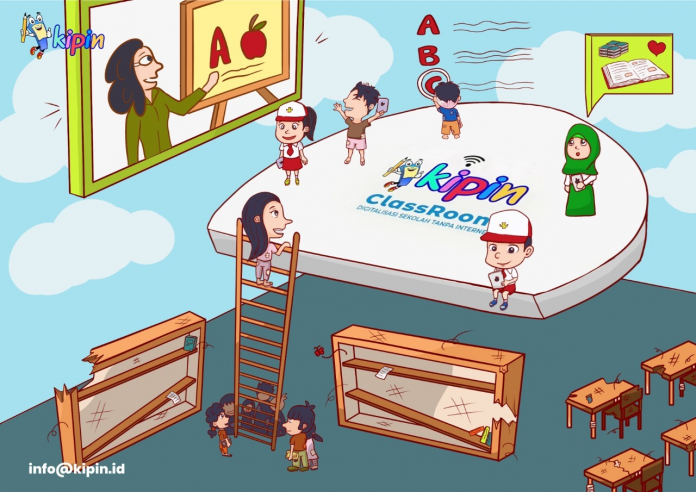
There are so many articles and discussions about Edtech Indonesia such as online learning, online tutoring (known as bimbel), online English, online LMS, and many more. But what about digital learning for those students with minimum internet access? Do you know there are over 36 million of K12 students in Indonesia who are still facing challenges in internet connection and in ability to pay for internet data costs.
As a proof to the point above, during the start of covid-19 and school shut down, The Education and Culture Ministry provided Rp 7.2 trillion (US$532 million) in social assistance in the form of phone credit and internet data packages to support students and teachers conducting long-distance learning for four months. Minister Nadiem Makarim announced the plan at the House of Representatives Commission Ten meeting overseeing the education sector, “We hope these subsidies can help all students and teachers [during this pandemic],” said Nadiem. The logic is if they can afford it then why did Nadiem spend US$532 million of internet subsidy for just 4 months?
In Indonesia, the Internet is slow, internet signals are weak, and internet data is expensive outside big cities. There are no unlimited connection packages like those students home who live in big cities. This fact has not changed much in a couple years nor will it change much in the next 3 years. Affordability and accessibility are structural problems that will take decades to improve.

Now you understand this fact as background, you can see why millions of students who were convinced (via advertisements) to download an edtech application will quickly delete them as soon as they found out that it requires constant internet data and it is not free (must pay subscription). There is very little or no conversion to sales.
Schools are free for students in Indonesia and they are the de-facto place for students to learn. Steffina Yuli said “But schools have been struggling to transform to digital because they could not find a technology model that is suitable for them until Kipin Classroom.” This smart device that does it all, Kipin Classroom is a local solution that was invented by PT. Mahoni Edukasi Digital, an edtech startup based in Indonesia. Kipin has won outstanding digital innovation from MIT Solve, WSA (United Nations Based Global Award Initiative), and Kominfo in the startup, positive impact on society, and learning and education category.
Kipin Classroom device can provide digital learning in just three minutes, even in areas without internet connection. There are no contractual limitations to school on how many students can use it. The cost for students to access digital learning from Kipin Classroom is zero or free regardless for 200 or 500 students. Most important of all, Kipin Classroom can serve up to 30 digital devices such as smartphones, tables, and notebooks concurrently for digital learning via wifi without the need for any internet connection.

Kipin addresses complete contents of digital learning for school grade 1 to 12 and assessment AKM for digital exams for teachers without worry of internet cost or online availability. Kipin Classroom is the right choice and the right technology transformation model that they have been looking for many years. Kipin is the official partner of the Ministry of Education in content distribution of Merdeka Belajar for all students in Indonesia. With Kipin Classroom local innovation, affordability and accessibility are no longer the barriers for schools in rurals, or any 3T areas, no one is left behind.
References:
- https://jakartaglobe.id/news/students-and-teachers-to-receive-internet-subsidy-for-online-classes
- https://setkab.go.id/en/govt-launches-internet-data-assistance-policy-2020/
- https://www.thejakartapost.com/news/2020/08/27/ministry-provides-rp-7-2-trillion-in-phone-credit-data-packages-to-support-distance-learning.html


